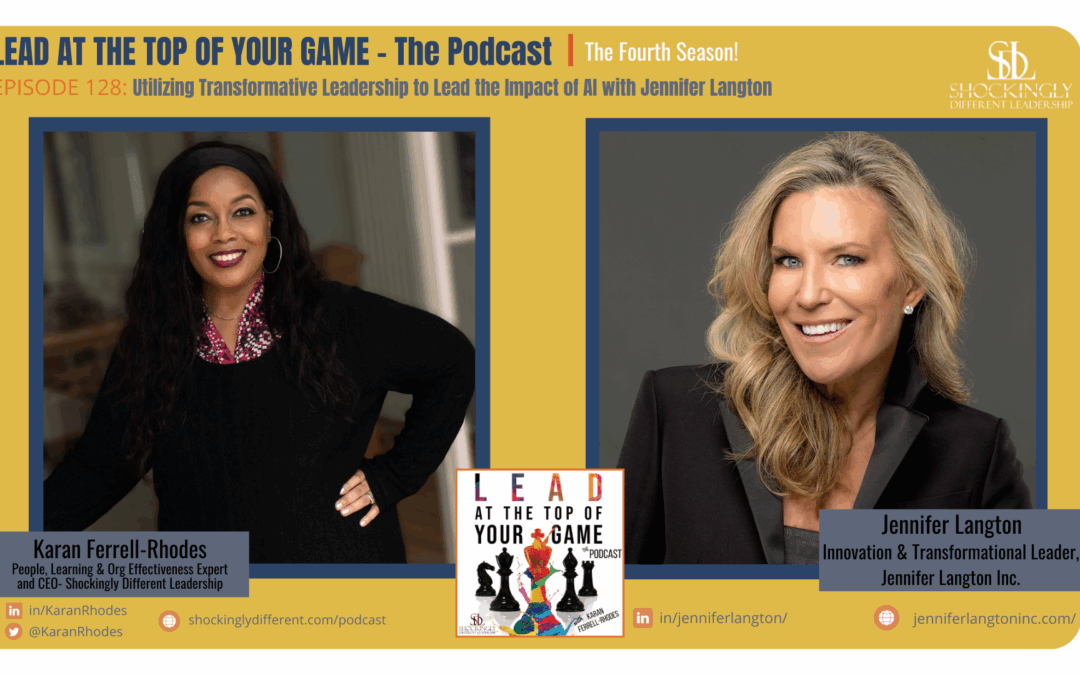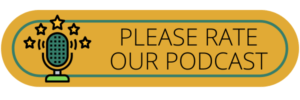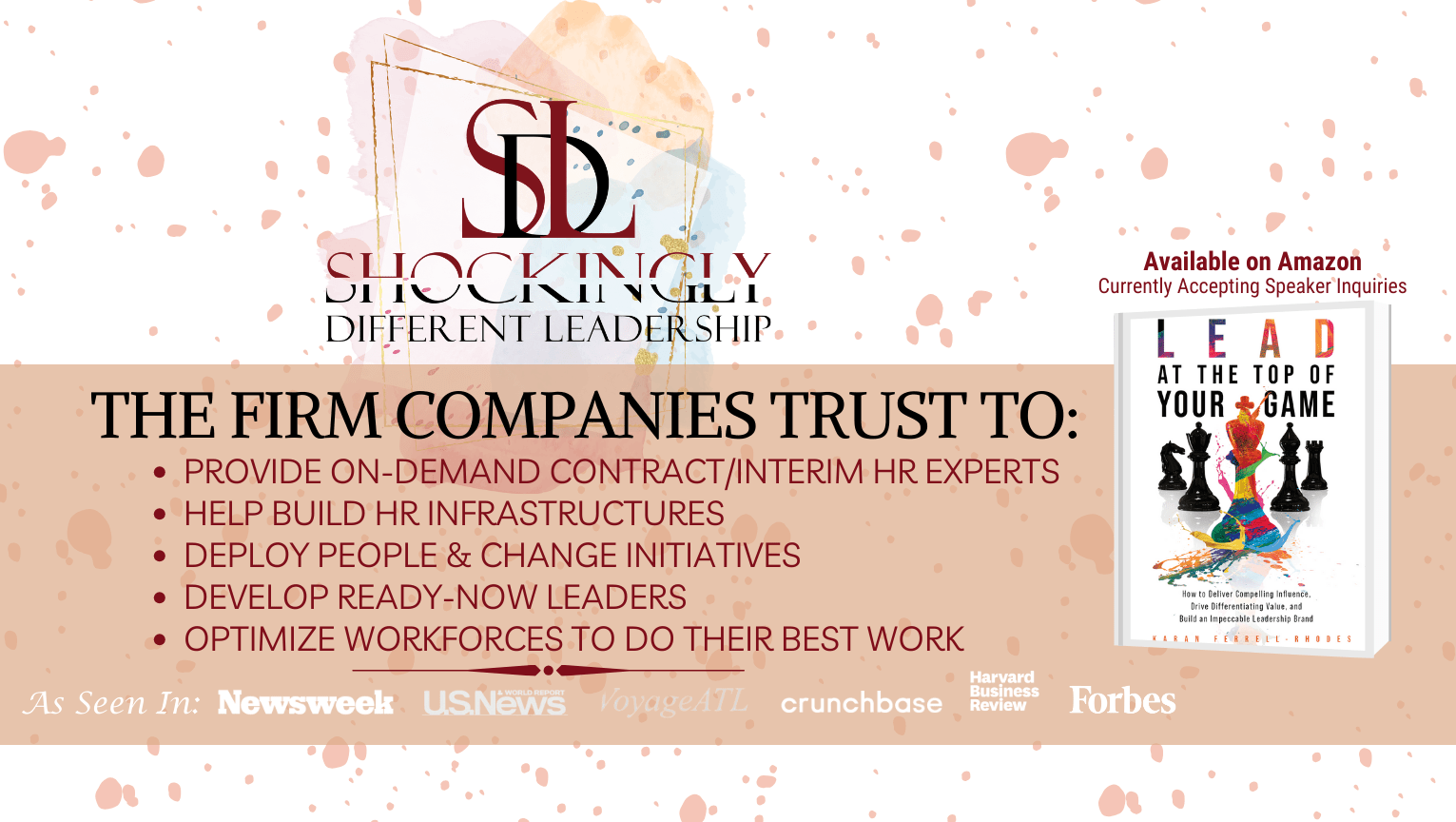IN THIS EPISODE, KARAN FERRELL-RHODES INTERVIEWS JENNIFER LANGTON.
In this conversation, Jennifer opens up about her personal journey, highlighting the importance of rest, reflection, and following one’s passions. She discusses her leadership style, rooted in authenticity, empowerment, and growth, and shares how she thrived in male-dominated environments. Now focused on speaking and consulting, she continues to inspire others to lead with purpose and drive meaningful change.
Jennifer Langton is a dynamic speaker and accomplished executive recognized for her expertise in innovation, finance, and sports safety. With leadership roles at Atari and the NFL, she pioneered advanced financial systems and spearheaded groundbreaking health initiatives.
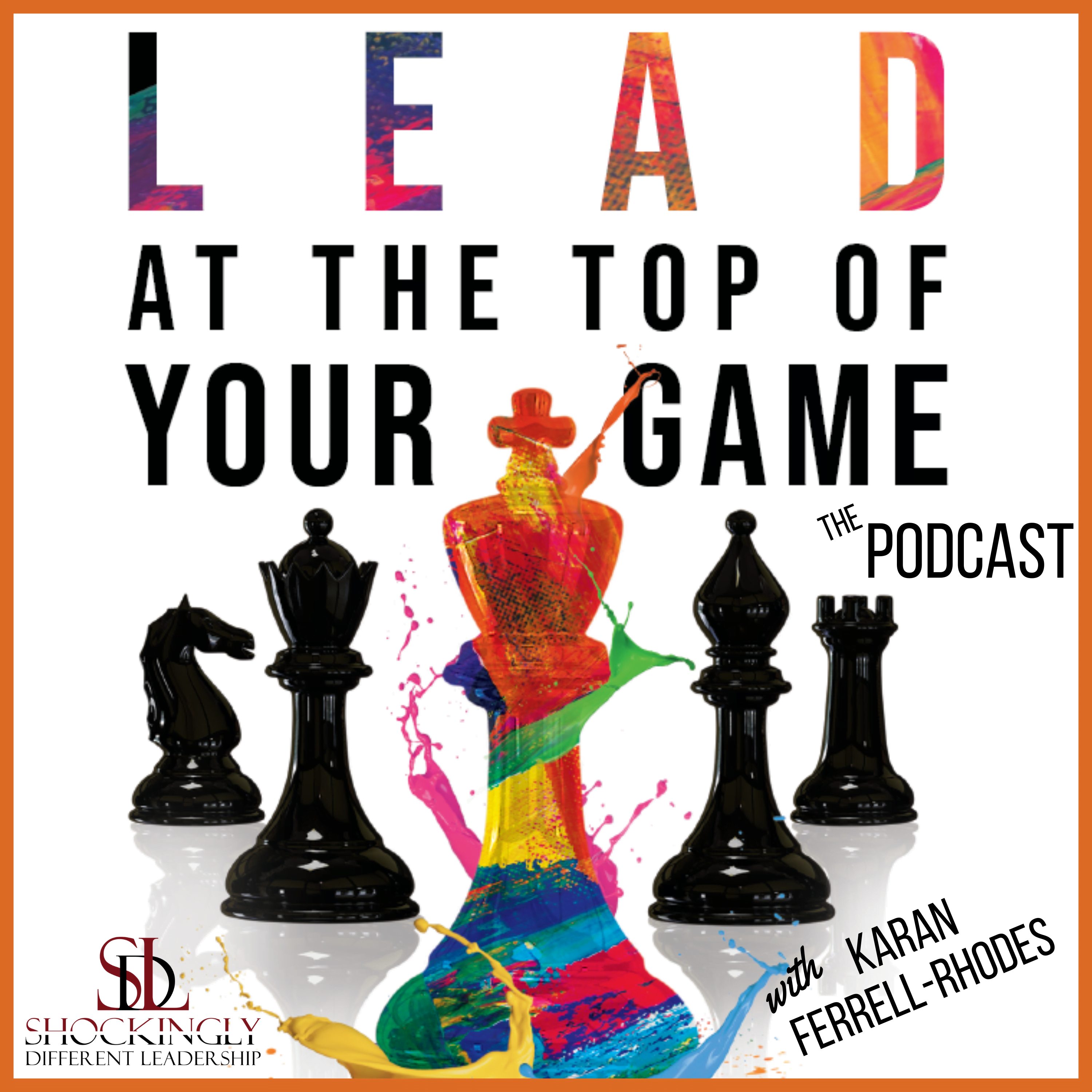
Posted by
SDL Media Team
Rather view our video podcast?

WHAT TO LISTEN FOR:
- What makes a good leader?
- Why self-reflection and downtime are essential
- How can someone succeed in a male-dominated field?
- How can teamwork help at work?
- What is the significance of leading with intellectual horsepower?
“A leader leads oneself before they can lead others.”
FEATURED TIMESTAMPS:
[02:25] Personal Life and Career Transition
[07:05] Career Highlights and Leadership Style
[14:58] Role in the NFL and Innovative Initiatives
[22:38] Signature Segment: Jennifer’s entry into the LATTOYG Playbook: Approach to Leading in a Male-Dominated Industry
[30:26] Signature Segment: Jennifer’s LATTOYG Tactic of Choice: Leading with Intellectual Horsepower
[32:24] Connect with Jennifer

ABOUT JENNIFER LANGTON
Jennifer Langton is a dynamic speaker and seasoned business advisor. She is an award-winning strategic executive with a proven track record of driving innovation and positive change. From her role as CFO at Atari to a transformational leader at the NFL, she spearheaded initiatives that revolutionized sports safety, including the league’s first injury reduction strategy and the development of an AI platform to predict injuries, impacting not only football but all sports and various other industries.
Jennifer is now delivering keynote speeches and providing advisory services to companies. With an MBA from NYU Stern and an undergraduate degree from the University of Virginia, she is dedicated to empowering others as a trailblazer in her field.
LINKS FOR JENNIFER:
- Website: jenniferlangtoninc.com/
- LinkedIn: linkedin.com/in/jenniferlangton/
- Instagram: instagram.com/jenny_langton
ADDITIONAL RESOURCES FOR YOU:


Episode Sponsor
SDL is the go-to firm companies trust when needing to:
- supplement their in-house HR teams with contract or interim HR experts
- implement leadership development programs that demonstrate an immediate ROI and impact on the business

Episode 128 | Utilizing Transformative Leadership to Lead the Impact of AI with Jennifer Langton
Jennifer Langton 00:00
I will say that the two things that became the foundation for my leadership style and approach was one, I was an athlete and played lacrosse at a very high level, was recruited on a national championship team, blew out my knee, and I lost my mother in the same year. Those experiences and you’ll hear are what played forward.
Voiceover 00:04
Welcome to the “Lead at the Top of Your Game” podcast, where we equip you to more effectively lead your seat at any employer, business, or industry in which you choose to play. Each week, we help you sharpen your leadership acumen by cracking open the playbooks of dynamic leaders who are doing big things in their professional endeavors. And now, your host, leadership tactics, and organizational development expert, Karan Ferrell-Rhodes.
Karan Rhodes 00:36
Hello, my superstars. This is Karan, and welcome to another episode of the lead at the top of your game podcast. Boy, do I have a fantastic guest on today’s show. Her name is Jennifer Langton, and she’s an innovation and transformational leader who has a proven track record in really driving positive change all the way from her roles as a CFO at Atari to also being a leader in the NFL, and she spearheaded a lot of initiatives that we’re going to talk about today, including the use of AI, which, you know, has been infused in almost every one of our episodes, because it’s touching every job function, every company, every activity across the globe. Now for those of you who know me deeply now, you know my passion around college and professional football, so having Jennifer on the show is just like the cherry on top for me to be able to talk football. She also some very meaningful lessons and around transformation in the NFL that I think you can actually apply to many companies and organizations as well. So welcome to the show. Jennifer,
Jennifer Langton 01:46
Thank you. Karan, thank you so much for having me and thank you for the warm intro.
Karan Rhodes 01:50
Absolutely, absolutely. I can’t wait to delve into our conversation around leadership, but before we do so, we always like to learn just a tad bit about our guests. So for just as much as you feel comfortable, can you give us a sneak peek into your life outside of work?
Jennifer Langton 02:06
Yes, well, Karan, after…I’m in a very unique transition phase, because after 15 years at the NFL and a very thriving career, I’ve gone out on my own and started in a new venture. So this is the first time I would say in my professional and personal life that I put a pause, and really did have the time to, one, decompress, but with clarity is like think and whiteboard what it is I want to do, where my emotions, where my passions were, because your passions do change. So I have spent a lot of time out at my house in East Hampton. I do beach walks every morning with a friend of mine. I enjoy reading because I used to living in New York City. You know, it’s like the cliff notes of everything. Yeah, that thing piqued your interest. You may be getting into the end of the day, so enjoying my downtime and seeing where that takes me. But I’ve been writing a lot. I do a lot of now speaking engagements, and I find it, one very therapeutic, but for me, it’s also a challenge. If I’m doing an event, it’s how to address that audience and really meet their needs. And so there’s creative ways to do it. So I really do enjoy it. So I have been, for the first time, really pulled back. Be interesting for you to go to speak to all the people at the NFL office, or those that I worked with, and I asked them how I am now. Because I don’t know how I did that pace, really, but I thoroughly enjoyed it. It’s just a different time of life. So outside of work right now, I am still doing speaking engagements and consulting, but I really am enjoying the downtime and being a bit more still and calm.
Karan Rhodes 03:45
And you know what that is so invaluable. Because I will say, when I left Microsoft to found my own firm, I did the same thing. I had about three to four months of downtime, and I had never done that in my life, ever. And to your point, it was a great opportunity to decompress, recharge, refocus and think about my next chapter. Although I had done some pre planning, it was just time for me. So I truly appreciate the gift you gave to yourself of kind of driving your wellness by being still for a minute, taking some time for you, on your hobbies, and then eventually taking a step forward. And I want to be one of the first to say congratulations on your new venture that is just awesome.
Jennifer Langton 04:33
Thank you. And I know that you worked at Microsoft in the very tech dominant sort of man, it is very important. Like, I don’t have kids, so I didn’t have a maternity leave like I literally never stopped.
Karan Rhodes 04:44
Wow,
Jennifer Langton 04:44
And when you do listen to your inner voice. There was something in multiple different times in my career where I created it at the NFL, the Langton roadmap, because I wanted to change. I wanted to go from a finance to a leadership position, but I wanted it to resonate with my passion. Decisions. It was that same influence to me, like I’ve gotten to a place and I’ve thrived. But I wanted that downtime to really listen to what you know, there was something missing, and what else could it be I’d be doing? Most people thought like, Oh my God, you’re really going to leave the NFL. You’re thriving there. But I was ready for a change, and I think it’s so important to stop and listen. So I very much appreciate that, because many times we’re just not afforded to do that.
Karan Rhodes 05:26
We’re not not at all. And so you, you are really lucky to be able to have that. That’s amazing.
Jennifer Langton 05:31
And I’m very appreciative to Roger Goodell and the NFL, because it was a tough decision. But how grateful I was to the experience, because you always want to leave on a high,
Karan Rhodes 05:41
Oh, absolutely. And never burn bridges, right? They’ll be friends for life.
Jennifer Langton 05:45
I think I wrote, maybe, Karan, 300 personal note cards to owners and yeah, just was a really remarkable when we get into my career, really remarkable experience of just exposure and the ability to do business and really transform myself as a female, but transform business. People don’t think about the NFL as being entrepreneurial, right? But it is. There’s so many different sectors of it, and especially as a woman, if you have a voice, and you align your voice and your passions to what a business needs are, then you can really thrive. So I had multiple different opportunities to do that. Look, I started there. I was in finance. I was a CFO at Atari, and then I ran an innovation platform, and, you know, and so I did follow that inner voice, and I continued to thrive. Hence, I needed the break. Karan,
Karan Rhodes 06:33
Well, let’s get a little bit deeper into that. So I know you had you were in the CFO Atari, but was that where you started your career. I mean, what were some of the highlight of milestones to bring you to the NFL?
Jennifer Langton 06:46
Yeah, so in short, because I did have quite a wealth of experience, that really became the foundation, I will say that the two things that became the foundation for my leadership style and approach was one, I was an athlete and played lacrosse at a very high level, was recruited on a national championship team, blew out my knee, and I lost my mother in the same year. Those experiences and you’ll hear are what played forward, very much more personal, but I didn’t understand sport and the commitment to not only the dedication the discipline to being an athlete, but the rehabilitation, the mental toughness to get through a career ending injury when you are on one end of the spectrum and then your sideline. So I did understand that, and that comes forward later, but that and my finance background, so I started my career in finance, and you know, first I was at author Anderson Consulting, but I went on this very early venture of emerging technologies and emerging technologies. I always had this, and managers will still say, out of an innate leadership skill and quality is in a quote. And then also my way of thinking is more out of the box, how to bring new innovative ways in which you can build efficiencies or processes. So an example of that was I was at Viacom television stations group, and when I was hired there was in a finance role, it would take the CFO and the CEO days to consolidate, think, 39 broadcasting stations all in different Excel. I called it Excel hell, from Excel to consolidate. So I did a big financial implementation there. And when I did the financial implementation, it consolidated 39 broadcasting stations. It caught Microsoft’s eye. And here Karan, I’m going to date myself. I know we spoke about age earlier, but it caught their eye. And they asked me if I would pilot a new SharePoint portal. It was a dashboard website, one of the right and so here’s the foundation of then me getting to where I did at the NFL. But with AI is when you build and automate processes with technology, and that’s what AI is today. To give you better insights. There are such valuable lessons in bringing the humans along with that. So when I built the dashboard, it was a metrics dashboard that they could real time manage their business, so that they could actually execute on what they needed to and not do all their calculations freehand, right? But how hard it was to get behaviors to adopt those new technologies, right? I spent so much time with the executive customizing their dashboards, and then I would go in and check and I was like, you’re not using it
Karan Rhodes 09:30
Right, you’re not even getting the information that you need.
Jennifer Langton 09:34
And my times in my career, I always was like, wow, there’s a new and novel way to do this, and I’m going to play it forward, and then that new and novel way you have to bring and empower the people along with you.
Karan Rhodes 09:45
That’s right,
Jennifer Langton 09:45
And build with and for the people, whatever challenges, whatever desire, whatever data you don’t have aI specifically build it with them and empower them to use it, not forever, replace them. Right? That was a key lesson at a. Younger, that was more like Junior in my career. Then an opportunity came up at the NFL to do another financial implementation. So I always did big restructures, but with the lens of innovation, gotcha. And so when I did that, this was a different experience for me, because that experience for me took me into the boardroom. We were going to restructure the company, and now I had the data and the insights to be able to educate the board, take that data, but with conviction, we need to restructure this business, because we’re bleeding cash overly simplifying, here’s a product, P and L, it’s not working. And what that did was we completely restructured the business. I had that board experience. However, I got promoted at a very young age, which is a nice surprise to North American CFO, but it was a different use of one data here to convince them, and then they gained that trust in me, that I could accelerate. And so a different use, but again, emerging technologies, right? I decided at that point to go back to business school. Had applied to schools here in New York, and then the opportunity came open at the NFL. And the opportunity came open at the NFL, uniquely, very similar to what I was doing at Atari. They wanted somebody to come in and restructure their parallel so similar to gaming and Atari, you have a product that’s just distributed. It’s a licensing model by distribution channel, and I found when they had hired me, wanted me to come in and do an RFP system, right, so that your likes of Nike and newer and Reebok and Adidas could bid on the apparel business. And so it was, wow, an education. I mean,
Karan Rhodes 11:40
I bet…
Jennifer Langton 11:43
I was playing from under armor, and they’re all bidding. But here is my unique quality. Was when I came in, they had a massive RFP that was paper driven. And just like I did
Karan Rhodes 11:52
That’s madness, paper driven, even in that day and age?
Jennifer Langton 11:55
This was now what we finalized that negotiation in 2012
Karan Rhodes 12:00
Oh my gosh,
Jennifer Langton 12:02
Still in Excel. But, and you would think like I had just done a good question. I had just done the first Microsoft dashboard at Atari, excuse me at Viacom, just a few years back. But what I did here was I went into the EVP at that time at the NFL, and I said, What if we streamline and automate this process? Because if we send out the paper driven, RFP, it’s going to take me months to just consolidate that.
Karan Rhodes 12:32
Absolutely
Jennifer Langton 12:33
Every product that they were bidding on by distribution channel, there’s permutations of it, and here I had a new team, I’m like, they’re going to hate me. What if we streamline this and do a digital dashboard similar to what I had done in the for the executives at Viacom. It automated the whole process. We had real time bids coming in, real time reporting that brought me into next, the negotiations. So here, my career path was always a new and novel way to think about things, which is that intellectual curiosity, and with that intellect, it’s really engaging. And this is my leadership style, authentic connections to really drive that change, whether a female and having a voice to ask for it. But it’s not I, it’s we, what if we? And then the impact of the business is essential. And so I had my own use cases to be able to deliver that.
Karan Rhodes 13:29
Yeah, but you know what you it sounds like you did do as well. Jennifer, you had your x areas of expertise and proven, I guess, examples and case studies from in the past. But this is just Karan talking. What I think was also key is that you brought a level of expertise and knowledge to an organization who did not have it, and you drove business value with it, and that’s what differentiated your ability to influence and impact, probably, versus the everyday employee.
Jennifer Langton 13:58
No, I appreciate that. Mind you, I’m still in finance, right?
Karan Rhodes 14:02
Yeah, still in finance. You can do it in whatever position you’re in, but you can present something that is not commonplace knowledge to others or decision makers or to the C suite. And if you can connect it into driving business value with a high ROI, they invest in what they see value in and it seems like you brought that to the table.
Jennifer Langton 14:25
Yeah. I mean, that was my first billion dollar deal I’d ever done. We brought on the likes of Nike. New Era. Moving into those negotiations was pretty rewarding for myself.
Karan Rhodes 14:34
I bet it was interesting. I wish I could have been a fly on the wall.
Jennifer Langton 14:38
And then you know, for me, it was there was still something missing, and exactly what you’re saying, I had use cases that I could present with my own confidence and showing it to the executive team, that I had the ability. And for a change, I went back to business school because I had to defer business school because of the apparel strategy I did the International. Strategy at the league as well, bringing London from one game two game model, and now it’s expanded to my no that has been impressive. Oh, it is so impressive. When the NFL, it’s a powerhouse for growth, it is for expansion, and I recognize that. So after business school, I had this just profound connection with leadership. I thought I would do more of finance or, like, study tech. Yeah, the things that resonated to me was new perspectives, new way of bringing people together. So I went back to the NFL, and very uniquely, I created, they had a talent mobility program. The year that I graduated from business school, I actually created what I call the Langton roadmap, which is exactly what you were saying. The first column was accomplishments, with all of my wins, but not just my wins, how it impacted them and how it impacted the business, not just about me. And that’s exactly what you were summarizing, like I contributed and I had a sweet spot for this, but what it did for them in the business, the middle column was then all my feedback, so positive feedback, like innate leadership skills, think outside the box. But then I put constructive criticism, showing that I could do something about those as well. And then column was my blue sky. And so here comes the AI innovation. I asked for it. I said, as a former we were in the concussion crisis at that point in time, and as a former athlete that blew out my knee, I wanted to give back to the athletes. And so I presented what I called the blue sky in this talent mobility, asking if I could lead league wide youth strategy, bringing kids back into the sport and also safety initiatives to prevent athletes from happening. What happened to me having a career ending injury? Guess what? They awarded it. And so I started a department with a partner who was a brilliant lobbyist and attorney by trade. He was amazing at policy. I was the business mind strategy, and he was on, you know, like the partner on the policy and legal side, but again, brilliant mind and we grew health and safety from what was League of denial to this year with the lowest number of concussions on record, multiple different programs and initiatives that we put into place. A lot of it is the power of the NFL. I mean, they are the leader in professional sports. They are started that department. Our mission was to be the leader in understanding, really researching and reducing injuries, which is pretty unique, the expansion and so we grew leaps and bounds. I’ll let you dive into that, but it was a pretty unique journey. But I asked for it. You know what I was getting myself into.
Karan Rhodes 17:45
We never do like on these groundbreaking, unheard of initiatives. You know, you sign up for it, it’s exciting, but then you have to figure out how to get it done right, excited on one end, and then you’re kind of in, almost like imposter syndrome, but you’re trying to figure it out as you go, and it’s baby steps forward and pivoting if you need to, and bringing in, you know, talent where needed. I’m sure there’s a lot of dynamics that are factored into that. And just out of curiosity, the model that you came up with, is it only applicable for the NFL, or do you teach it to other organizations as well?
Jennifer Langton 18:20
No Good question. I do teach it to other organizations, and it’s very much of my it blends into my like leadership, really like framework, which is very like authentic connections. I shared a piece of myself within that LinkedIn roadmap, which was a personal connection. And then the second is empowered self trust. You have to trust yourself a leader. You lead oneself before you can lead others. And with that inner confidence, not only was I showcasing my abilities, I trusted my abilities that I could take on more, but I also mitigated if they didn’t give me those positions, I had other optionality, and then it’s always continuous growth. Yeah, and what I love about your branding a podcast is like, how do you lead from the top? All of those others were wins and success, but this, to me, was leading out of the top. I went out of my comfort zone. I’m now with every leading neurosurgeon, neurologist, and I had to learn. And here I could put a business rigor to it, but one of the most important things I now with this transition and real catalyst for change, I was in a leadership position, not the transactional more manage the business finance and handing it off to somebody else to lead. Yeah, right. And so in this leadership role, it was very much who I was to take that change. But when I say one of the key lessons that I had first learned is I was a sponge. Karan for just knowledge. You know, I didn’t know about concussion diagnostic. Siegel, we did a $60 million Head Health Initiative with GE General Electric Sue Siegel is this pioneer, brilliant mind from healthy imagination their VCR. So she taught me crowdsourcing and so you have complex problems, like we were trying to solve for a concussion diagnostic on sideline right, or a blood biomarker that can inform different aspects of concussion. I’ve not been in healthcare, in science, so I was a sponge to learn. But one thing that she taught me is, one the ability to increase your global network, to solve four complex issues. And when you have a brand of GE in the NFL, you attract people,
Karan Rhodes 20:38
It opens doors for you. Yeah.
Jennifer Langton 20:40
Global crowdsourcing challenges. But this is another thing that she taught me that was so instrumental to my growth at that time, you don’t have to have all the answers.
Karan Rhodes 20:49
No, you don’t.
Jennifer Langton 20:50
I had so many of the world leading experts at the NFL attracts and the teams that we built. I mean, we had an ecosystem of experts that what I did very well was connect them. If I invested my time and they trusted me to learn, then I could ask the dumb questions. Because
Karan Rhodes 21:11
There never is a dumb question, right?
Jennifer Langton 21:15
Those…it’s true those connections or those experts wouldn’t have connected. And when you keep it to our goal, we’re not about publishing papers right now, we’re about the health and safety of our athletes. So I had a very clear mission and helping to bring them together. I didn’t need the answers. I needed them to educate me so we can turn it into strategy, and I could relate it back to the NFL offices to really make impact and change leadership had very significantly, really started to change and morph into more of an executive leadership role where I was very much then thriving, then I consider myself at the top of my game. Karan.
Karan Rhodes 21:54
No, that makes a lot of sense. I’m curious, Jennifer, how you were able to thrive in the male dominated industry, because, as you know, I came from tech, which, you know, many times I was on the only woman or people, woman or person of color in the room, and this was at the high executive levels. I’m curious what your journey was being a leader in a male dominated industry.
Jennifer Langton 22:18
Yeah, I love the question, and I do talks, and I really the way that I get such fulfillment out of speaking to women in male dominated environments, because we second guess ourselves or question ourselves more than men. Do we do? And when I give advice, it is the power of not only finding your voice, but really improving and owning your voice, and when you have the ability to do that, it doesn’t matter what genders are around you. It doesn’t matter if you’re the youngest of a team. It doesn’t matter if I was the only one in the room with GE and our partners who wasn’t in medicine. When you own your voice and you build that inner trust and confidence. It’s always continuous growth. So it goes back to my leadership, and when I say that, I’ll give you this story, and it was pretty profound for me. Right after we started with General Electric, we had some really good wins where we translated new innovations like the biomarker, like concussion diagnostics, you get to accelerate fields faster when you do it with partners. And so we built an engineering roadmap. After that, it was a $60 million investment, and then I’ll get to the AI. So we built this engineering roadmap. And the engineering roadmap was to better understand how concussions happen on field, meaning the mechanism of injury, and designed for better performing helmets to reduce packs and the concussion with position specific design. So when a quarterback is rushed, he braces the ball and he does not, you know, braces the ball and not himself, right? He is more likely to get concussed in the back of the head, where his head hits a surface right in a helmet design with more energy absorbent material in the back of the head to prevent that one position mitigating their risk for impact that commonly happens to them, different for a lineman who’s more front so we went to this position specific design who is vital to our success, were all of the NFL equipment managers.
Karan Rhodes 24:24
interesting. Why? Because they gave feedback on what they saw with the helmet.
Jennifer Langton 24:28
They’re the purchaser of the helmets with the team. They are the ones that outfit the players. We are going to transform the helmet marketplace. They are the ones that have the trusted relationship with the athletes to get them into better performing helmets. We got to a point where we had the scientific rigor to support this is a low performing helmet. We prohibited those helmets
Karan Rhodes 24:50
Didn’t you all have, like, a series of was it not every five to seven that they could choose from?
Jennifer Langton 24:58
Yeah. So it changes. Every year because the so the helmets have increased nine times fold from when we started this technology
Karan Rhodes 25:08
Fascinating.
Jennifer Langton 25:09
We understood the concussions on field, 50 variables. We that data. We give it to the helmet manufacturers so they can design for better helmets. We understood the velocities, the impacts and the speeds for which were causing concussions, because we had the data to support it.
Karan Rhodes 25:27
Right.
Jennifer Langton 25:28
And when you had a helmet that was statistically significant, meaning it tested in the laboratory, and you showed the data on field, we would prohibit those helmets.
Karan Rhodes 25:36
Well, how did you factor in the doctor’s evaluation, like on the field when once the concussion happens.
Jennifer Langton 25:42
So that’s the medical side, not the innovation side…
Karan Rhodes 25:45
or did you factor it in, I guess? And the follow up.
Jennifer Langton 25:48
So, that’s a very good question. So when we taking a look at the mechanism of injury, it’s the forces and the vectors. We do not have medical notes, right? That is with the medical team,
Karan Rhodes 26:01
Okay, gotcha.
Jennifer Langton 26:02
So what we were looking to do was use as much data as we could to better understand how impacts happen. It was not position specific, because we couldn’t use that data…
Karan Rhodes 26:13
Right, right,
Jennifer Langton 26:13
Right? And concussions are public, so we knew this number of concussions happen in this helmet, therefore a higher rate. We also understood how they tested under those conditions in the laboratory, which was poor,
Karan Rhodes 26:26
Yeah,
Jennifer Langton 26:27
Right? Different from a diagnosis a diet only contained with the medical teams. We did. We were not privy to that data. And so going back to that story, equipment managers were so vital, because we are going to change their world and the players world.
Karan Rhodes 26:41
Yeah,
Jennifer Langton 26:42
You have players Tom Brady, who never changed his helmet, and now your home. He’s one example, right? I don’t want to change my helmet. I’ve performed in this
Karan Rhodes 26:52
Yeah
Jennifer Langton 26:52
But it’s statistically significantly proven that it is a low performing helmet and it will be banned. That’s where you always got the five to seven Karan every year, it would change more data that you had, then we could be able to educate the equipment managers and the players on the performance of that helmet
Karan Rhodes 27:11
I love that.
Jennifer Langton 27:12
And so we got a drop. So all of this. So I get in front of the equipment managers for the first time. They have no idea who I am, and am approaching literally a room of all men, hoodies, right? Their hats are like, they each have their Team Cap pulled low, and I’m take the podium, and I’m like, Wow. I mean silence was deafening, and I’m like, here’s leadership. I knew I needed to grab their attention, break that, turn that like skepticism into like curiousity. I didn’t know what I was going to say, but I had a post it note in my hand, and this is what I tell women like I had a post it note in my hand with critical things I needed to tell them about the roadmap,
Karan Rhodes 27:55
Right.
Jennifer Langton 27:56
But when I got to that stage, here’s my authentic connection and my leadership. I said, Good morning, gentlemen, hoping that they’d look up. Nobody looked up, and I as the only girl who played in an all boys lacrosse team. I want you to know I feel very comfortable up here.
Karan Rhodes 28:12
Good for you.
Jennifer Langton 28:13
And the laughter broke. The tension broke. Happened. Their curiosity turned into dialog that turned into real transformation.
Karan Rhodes 28:21
Yeah,
Jennifer Langton 28:21
So how did I survive? I had the inner confidence and I found my voice to connect with individuals on a personal level, because that’s how you build trust, and with that, that’s how you build collaboration. That wasn’t any different from being in a room with all engineers or all subject matter expertise, where I didn’t have that subject matter expertise,
Karan Rhodes 28:43
Right.
Jennifer Langton 28:44
Still finding your voice and showing what you could contribute.
Karan Rhodes 28:47
I love that. Thank you so much. That was such a great story to follow as well. And Jennifer, I literally blinked, and I cannot believe we’re running out of time. I mean, we could talk for about another two hours on this, but I cannot let you sneak out of here without asking you our signature question that we always ask our guests. I know that’s why you’re gonna have to come back. That’s that’s the only solution you’re gonna have to come back. Best part too. I know we got to bring part to it. We got to get that on the calendar. But our signature question, as my regular listeners know, we wrote a book on high potential leaders and organizations. We did research on it and wrote a book about our findings, and we always ask our guests which of the seven buckets of actions of high potential leaders and organizations really resonate with you all are equally as important, but usually there’s one that pops out for our guests, and you were so kind to share that intellectual horsepower really piqued your interest. And for the new listeners out there, intellectual horsepower is all about using your areas of expertise in order to spot trends and connect the dots and bring new information and areas of opportunity that other may have missed so curious minds would love to know, Jennifer, what about intellectual horsepower? Really resonated with you?
Jennifer Langton 30:06
Oh, you heard about my the early stages, much early stages of my career, and when you can think out of the box, and when you could bring in an efficiency, more data and insights to people, how company their performance, but then companies could thrive,
Karan Rhodes 30:23
Yeah.
Jennifer Langton 30:23
And so I when you said intellectual horsepower, it’s new and novel ways to think about things, but listen to what we did with position specific helmets, a new perspective in a way of thinking.
Karan Rhodes 30:37
That’s right,
Jennifer Langton 30:38
It’s just then how to use your voice to carry that forward. And so that is learning from we would have leading biomechanical engineers, well known in the automotive space, bringing different perspectives in, right to increase your intellectual horsepower, but then use your own use cases like I have, and say, you know, whether I had built something the dashboard. Now at Viacom here, I’m in a new situation. Have you thought about this? Because I did it and it worked right? And so it’s that same catalyst for change, but you have to approach it in the right way. The key thing is never say I, you say we, yeah, if we, I had had this experience had done it here at work. What if we had done it here? But I had the ability to really be more of a transformational change agent in certain companies, and I played that forward. But it’s not necessarily always your own intellect, with the use cases touching others that can really drive impact and change being new perspectives.
Karan Rhodes 31:41
Yeah, that brings them into the conversation. Absolutely. Well, Jennifer, you know, we’re going to have a ton of information about you, your bio, where to find you in our show notes, but I always love to give guests an opportunity to give air time to where folks can learn more about you and connect with you, and maybe even bring you in for additional speaking engagement. So where’s the best place for people to connect with you?
Jennifer Langton 32:04
So after leaving the NFL after 15 years, Karan, I have my first official website, Jennifer Langton, Inc, and you’ll see there’s a host of different examples of speaking engagements that I have done, whether that’s leadership, transformational leadership for women and finding your voice on how to thrive in any environment. It doesn’t have to just be a male environment. And so there’s numerous different I always think the best talk that you can give is addressing what the audience wants.
Karan Rhodes 32:33
Yes, absolutely,
Jennifer Langton 32:36
That’s one thing. And then I absolutely love like I had it Viacom, like I had it Atari as well as NFL is working with whether that’s individuals or organizations to do different out of the box thinking, have you thought about, have you done this? So I do love the coaching nature of helping. I just have to be careful on how much I onboard. You know, what I’ve done in organizations is really to impact individuals and organizations on how to embrace change, because a lot of people are scared of it. Yeah, absolutely. So when I say embrace innovation, inspire the change then and lead with purpose, because I do think that’s really where you get your transformation.
Karan Rhodes 33:16
All right. Well, we will encourage everyone to check out those show notes, to check out your links and to see all of your offerings on your new website, and congratulations again on your new venture and the new chapter in life. And we so appreciate you sharing your insights on today’s episode.
Jennifer Langton 33:34
Thank you, and thank you so much for having me. I really enjoyed it
Karan Rhodes 33:36
Absolutely. And thank you to listeners for the gift of your time as well. We know that there are literally other podcasts, probably a million or so out there that you could be listening to, but we do not take your patronage lightly. All that we ask is that you like and subscribe to the podcast on your favorite podcast platform of choice and share with just one friend, because by doing so, that will help us all to better lead at the top of our games. Thanks so much, and see you next week.And that’s our show for today. Thank you for listening to the lead at the top of your game podcast, where we help you lead your seat at any employer, business, or industry in which you choose to play. You can check out the show notes, additional episodes, and bonus resources, and also submit guest recommendations on our website at leadyourgamepodcast.com. You can follow me on Twitter, Facebook, Instagram, and LinkedIn by searching for the name Karan Rhodes with Karan being spelled K a r a n. And if you like the show, the greatest gift you can give would be to subscribe and leave a rating on your podcast platform of choice. This podcast has been a production of Shockingly Different Leadership, a global consultancy which helps organizations execute their people, talent development, and organizational effectiveness initiatives on an on-demand, project, or contract basis. Huge thanks to our production and editing team for a job well done. Goodbye for now.

Want to be a Podcast Guest?
Check out our guest qualifications and submit our brief form to be considered.
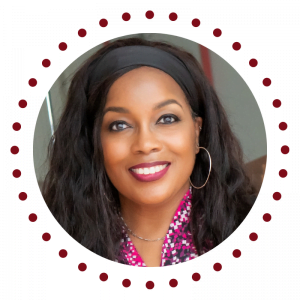
Want Karan to be Your Podcast Guest?
- Blended Workforces & the Gig Economy
- Critical Execution Tactics of High-performing Leaders
- Entrepreneurism & Leading Your Business
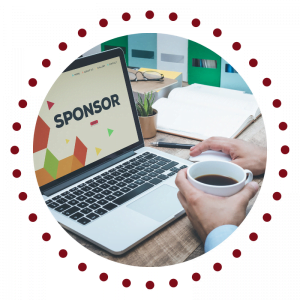
Want to be a Podcast Sponsor?
All sponsorships come with a featured spot on show notes pages.
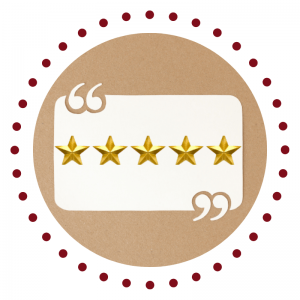
Like the Show? Please Leave a Review
If you like the show, it would mean the world to her if you left a quick review.
Your word is golden, so a HUGE thank you in advance!

#KeepInTouch
via our podcast alerts
Subscribe now to discover why thousands of monthly listeners who are passionate about doing their best work prioritize time each week to listen to the Blended Workforces @Work podcast.
#AboutSDL
#WhereToFindUs
MAILING
4480-H South Cobb Drive
PMB 219
Smyrna, GA 30080
PHYSICAL
2121 NewMarket Parkway
Ste. 108
Marietta, GA 30067
#ContactOptions
Customer Service Email:
service@shockinglydifferent.com
Call or Text:
770-384-1103
#Office Hours
MON-FRI
8:30 AM – 6:30 PM
Weekends By Appointment

